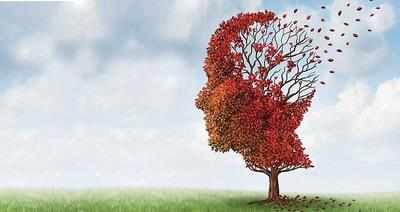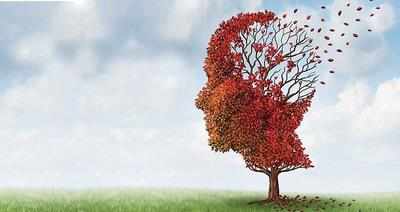Learn about brain health and nootropics to boost brain function
Get Ready To Grow Old


BENGALURU: This past week, a video of Mick Jagger went viral. The 22-second video showed the rockstar dancing to The Wombats’ song, Techno Fan, without missing a beat. Of course, what sent his fans and the internet on a tizzy is the fact that the young at 75 Jagger was dancing that way a month after a heart valve replacement surgery. Wonders may never cease when it comes to Jagger but in a world that is obsessed with staying young forever, the musician’s story reaffirms the saying that ‘age is just a number’. The world of celebrities is filled with examples such as these. Former American president Jimmy Carter, 92, who had a hip replacement surgery recently after a fall is ready to teach at Sunday school, and there’s Madonna who at 60 has announced another album. People like Jagger, Madonna and Carter prove that growing old doesn’t necessarily mean that you have reached the end of the road. You can still sing, dance and be merry. While such stories with positive spins about age are good, the truth is that the ‘idea of oldness’ is not pretty in one’s head. Nor are most of us wealthy and cushioned by money like celebrities who can afford a nip here and a tuck there.
There’s youth. And then there’s old age. And in between these two phases, lies a grey area where life lulls you into believing that old age somehow will leave you untouched. “Age is an important number, but it can also be deceiving. After 40, most people say they feel younger than their years, some lie about their age, and many attempt to hide the signs of growing old,” reads the blurb on Dr Alan Castell’s book, Better with Age: The Psychology of Successful Aging. In his book, the UCLA professor of psychiatry suggests an idea that is still unconventional in India: instead of waiting for old age to happen, which it eventually will, prepare for it when you are still young. “In the west, the concept is very familiar. You have people planning for their old age when they are in their 20s and their 30s. They begin investing in insurance plans for old-age related health problems, saving away for old age homes and they even ask their doctors for ways they can preserve themselves better, but in developing countries like India it is still not done,” says Dr Debanjan Banerjee.
According to Caring for Our Elders: Early Responses India Ageing Report 2017 by United Nations Population Fund (UNFPA), the proportion of 60-plus population (the age when you are termed elderly) is expected to increase to about 22 percent from the current figure of 11.5 percent. In India, the report says, the population of the elderly has increased from 77 million in 2001 to 104 million in 2011. In 2050, the number is expected to touch close to 300 million elderly people. Today’s young India will be an ageing one in 2050. There probably is a strong case here for the need for having healthy ageing plans in place.
I HAVE A PLAN IN PLACE
Keertana Ramakrishnan*, an illustrator, was 30 when the truth about ‘ageing’ slowly started creeping up on her. And since then, she has, she says, been preparing for old age. “I didn’t have anyone tell me this, but I just started saving money. Then when I turned 40 recently, I actually sat down and charted out a proper plan on how I want my life to be when I hit 60”. The plan includes where she will live, how much money she intends to have resting away in a bank, having an insurance plan that she can fall back on in case she is diagnosed with a terminal illness like cancer, having a network of friends who will watch out for her. “I have a list of friends who I know I can call on in case I have a health emergency,” she laughs before agreeing that she is an odd egg in her group of friends who are leading packed lives and don’t think too much about age. “I know it sounds paranoid and while this also has to do with my fear of being alone in my old age, the fact that I have a plan assures me that I can handle it better,” she says before adding, “You know, everyone tells you that you need to save money for your retirement but nobody tells you about preparing for loneliness that accompanies old age and considering the way family units are becoming small, we need to think about it,” Ramakrishnan says.
As an elder care physician and consulting in Palliative Medicine and Geriatrics at Narayana Health, Dr Gopukrishnan Pillai meets people who have reached the fag end of their lives. “During that time, people are looking to piece together the narratives of their lives based on all the relationships and the experiences they have had in their lives. What I have seen is that those of them who have lived their life well were at peace with getting older while the ones who are angrier are those who regret not having taken opportunities when they could have,” says Pillai. His advice to young people is simple. “When you are in your 30s, 40s and 50s, you want to define your life by experiences. So, when you get the opportunities to do what you love, don’t put them away under the pretext of career or familial responsibilities. Routine doesn’t set you free, and while there will be demands on you, if you are able to take time out for yourself, do that.”
At 39, Jaydev Sarma found himself at crossroads of life. He had to choose whether he wanted to stay in his marriage or divorce. I was at that funny threshold where I was young and yet not so young so I chose to divorce my wife,” he says looking back at that episode of life seven years on. And is he happy with his decision? “Yes because I am happier today than when I was married,” he says. The fact that he was hitting 40 may have subconsciously pushed him to do it he says. “I think if I had not ended my marriage then I would have stayed in it because, the thing is, as you grow older, you tend to settle with life as it is.” Single and with not too encumberances, Sarma has he says been busy course-correcting his life. “Forty is the age when you realise whether your life has been good in terms of finances, assets, relationships, and health. And so that is the decade when you do course correction because you can still salvage it.” Sarma’s priorities are sorted today So from opting for a job that is less stressful, to following a Keto diet, and dating actively, life is on an even keel these days. “I have dated more women in my 40s than I did in my 20s,” he laughs before revealing that he has started planning for old age. “Yes, I have started thinking about life post -60. I have an outline of where I want to be and I have started working towards it,” he says.
KEEP YOUR BRAIN ACTIVE
An insidious aspect of old age is that your brain power slows down. Memory loss is natural. And in some case, dementia and alzheimers is a cruel reality. But whether it’s in your genes or not, you can delay the onset of these ailments, says Dr Banerjee. The solution? Keeping your brain active. “If you are considering ways to prevent dementia in your old age, then you can start preparing as early as your 20s. Keep yourself active socially by meeting new people, do things you love in as many different ways as possible, play interactive video games, solve puzzles and crosswords, learn new languages, travel. The logic is simple: always keep your brain engaged. Playing with children is extremely effective as well.”
EXERCISE CONSISTENTLY
A healthy life, Dr Debanjan Banerjee, is determined by your physical, mental and social health. Physical health refers to how fit and healthy your body is. And so how early should youngsters start taking fitness seriously? “You should start working out regularly once you turn 25 because your body starts losing muscle mass from that age on,” says Pooja Bhatia Arora, an aquafitness instructor whose students range from 20s to 60s. “After 60, you want to be able to do daily activities like climbing stairs, walking, and lifting simple things easily. So, exercising consistently from your 20s will help you lead an active life well into your 60s. Also, your body’s ability to heal from any illness or injuries gets better,” she says. “Make exercise an essential part of your life just like brushing your teeth,” says Deckline Leitao, Consultant Strength & Conditioning Specialist, RxDx Sports Medicine centre. While he endorses working out daily, he exercises a word of caution. “The right amount of exercise is important to get the best results. As we get older we gradually begin losing elastin, which is the component that allows tissues to stretch. Also the shock-absorbing lubricant in our joints called synovial fluid lessens. So following a sensible fitness and nutritional approach is important to understand that one just cannot train like how you did in your younger years.”
(*Names changed on request)
Make sense of the 2019 Lok Sabha elections and results on May 23 with TOI. Follow us to track latest news, live updates, news analysis and cutting-edge data analytics. Track live election results, the big trends and fastest updates on counting day with India's largest news network.
Click here to view full article